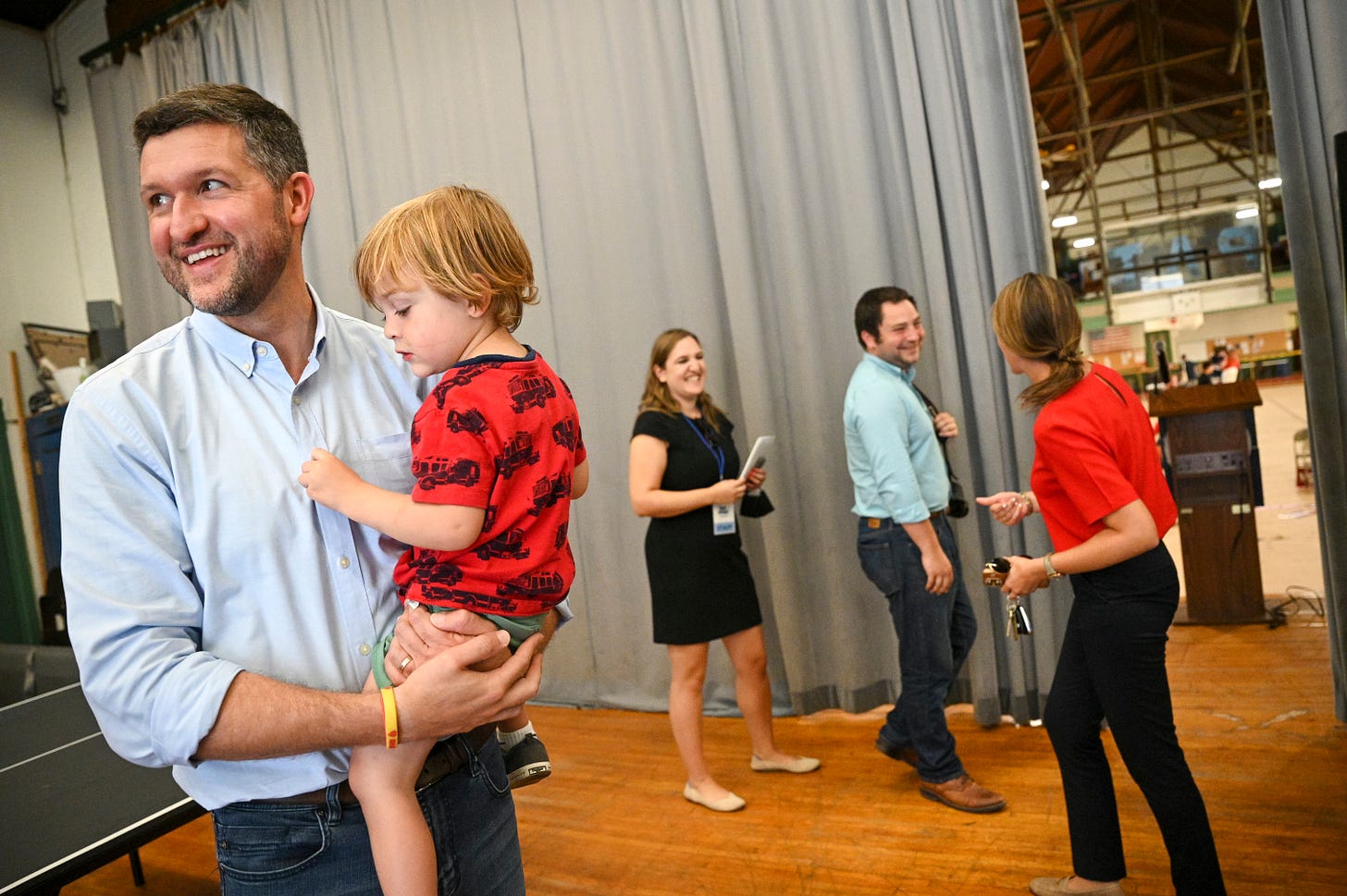Republicans' Other Dobbs Problem
Their coalition contains a lot of voters who aren't that religious and aren't especially keen on abortion bans. And they may not vote this November.
Dear readers,
Democrats had a strong election night on Tuesday, continuing their streak of special election results more consistent with a decent electoral environment than a poor one. In New York’s 19th congressional district, a swing district where Joe Biden narrowly won in 2020, a Democrat beat a strong, moderate Republican candidate. Democrats also over-performed, but did not win, in a special election in the 23rd district. And they have recently posted strong results — much better than Biden’s 2020 result — in special elections in Minnesota and Nebraska.
Taken together with other data points, like the strong win for the pro-abortion-rights side in Kansas’ recent referendum on the issue, these election results have led to a rethinking of Democrats’ likely seat losses in the House this November — the Cook Political Report is now targeting a Republican gain of 10-20 seats, down from 15-30. It’s increasingly plausible that Democrats might even hold their majority in both houses of Congress.
Why have Democrats’ fortunes improved? One obvious factor is that gasoline prices have fallen sharply from their peak in June, causing public assessments of the economy to become less dire, even though core inflation is still high. Another is that the Dobbs decision energized Democratic voters and gave them a reason not to stray even if they are lukewarm on President Biden and upset about inflation or other aspects of his record. But I think there’s a third factor to consider: In addition to making Democratic voters more motivated and more loyal, Dobbs is making key Republican voters less motivated and less loyal.

Of course, the Republican base is pleased about Dobbs. But the base always turns out to vote for you — that’s what makes them the base. One of the reasons Donald Trump was able to win in 2016 despite alienating large numbers of traditionally Republican voters in upscale suburbs was that he brought out so many new voters who weren’t traditionally part of the Republican base — often, non-college-educated white voters in the north who had previously voted for Obama, or less-engaged voters who previously hadn’t voted at all.
Both of those groups of voters tend not to be motivated by the core issues that traditionally interest the religious right, such as abortion. They tend to be relatively disconnected from civic institutions, including churches. Bill Clinton did well with these voters at a time when Republicans were seen as moralizing scolds who wanted to take away your Medicare. Trump won them over by emphasizing opposition to immigration, abandoning unpopular Republican economic planks on Social Security and Medicare, and defending their “traditional” values against a snobby elite without projecting a religiously conservative moral worldview.
There’s an irony about Trump and the religious right that I’ll get to in a moment, but first, let’s look at what these non-base Trump voters have to say about their options in the primaries and this fall.
Keep reading with a 7-day free trial
Subscribe to Very Serious to keep reading this post and get 7 days of free access to the full post archives.



